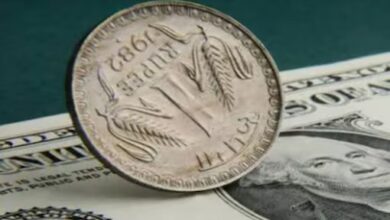How AI is making better beer during happy hour
Belgian experts have added another feather to their culinary crown, or, should we say, another bubble to their beer, in a country where waffles, chocolate, and fries are the national dishes. Artificial intelligence is being used by a group of scientists to create the ideal beer that will satisfy even the most sophisticated beer connoisseurs.

These Belgian scientists are attempting to improve the already delicious Witbier with the aid of artificial intelligence.
They would prefer not to use alcohol, however. You read it correctly. The finest (or worse, depending on who you ask) portion of beer is being removed, but the flavour is supposed to remain the same.
According to research that was published in the journal Nature Communications, AI models may potentially recommend methods to enhance the flavour profile of beer in addition to properly predicting how consumers would rank it.
The KU Leuven University researcher, Prof. Kevin Verstrepen, made a joke, saying, “We had the models analyse these beers and then asked them, ‘How can we make these beers better?'” And sure enough, once we conducted blind tastings, the beers improved and gained greater recognition. It’s like to having a robot that enjoys beer as your own brewmaster.”
The group examined 250 distinct commercial Belgian beers throughout a five-year period. The taste components and chemical characteristics of each beer were measured. Subsequently, the team integrated this data with evaluations from a skilled panel of tasters and an extensive compilation of 180,000 reviews from the well-known internet portal RateBeer.
Ten machine-learning models were trained by the researchers using this massive dataset to forecast a beer’s flavour, aroma, mouthfeel, and overall customer rating. It’s interesting to note that all 10 models were better at predicting how highly a beer will be rated on RateBeer than the human expert panel.
“Beer, like most food products, contains hundreds of different aroma molecules that get picked up by our tongue and nose, and our brain then integrates these into one picture,” Verstrepen said.
“However, the compounds interact with each other, so how we perceive one depends also on the concentrations of the others.”
Certain substances, such as the lactic acid present in sour beers, have been determined by researchers to add to the flavour of beer. Researchers have been able to improve the freshness and overall quality of different varieties of beer by incorporating these substances into them.
He continued, saying that some ingredients that were once thought to be unpleasant can actually improve the flavour of beer when they are present in small amounts and combined with other aroma compounds. “Tiny changes in the concentrations of chemicals can have a big impact, especially when multiple components start changing,” he said.
Although the discovery may not directly benefit brewers, it may be especially helpful in improving alcohol-free beer production, which has been a problem for the beverage sector. Verstrepen has claimed that after applying the recommended modifications based on the AI model, the non-alcoholic beers were no longer identifiable from ordinary beer in unpublished studies.
The models pinpointed certain ingredients, such as lactic acid found in tart and sour beers, that add to the enjoyment of a beer. The researchers discovered that by incorporating similar molecules into different kinds of beer, they may raise the perception of freshness and quality overall.
The potential for this study to improve alcohol-free beers is among its most fascinating uses; the beverage industry has had difficulties in this regard since even teetotalers shun them. Verstrepen disclosed that in a different, unpublished study, the AI model’s recommended modifications made non-alcoholic beverages indistinguishable from conventional beer.
So, will AI eventually make beer? Not anytime soon, according to Verstrepen, who maintains that brewers’ knowledge is still essential. “Brewers are still responsible for making that happen, starting with the recipe and brewing methods. The AI models predict the chemical changes that could optimise a beer,” the speaker said.







